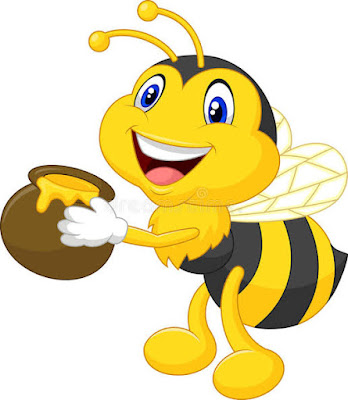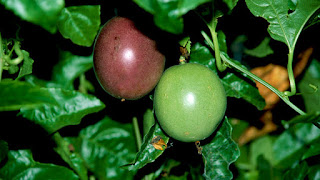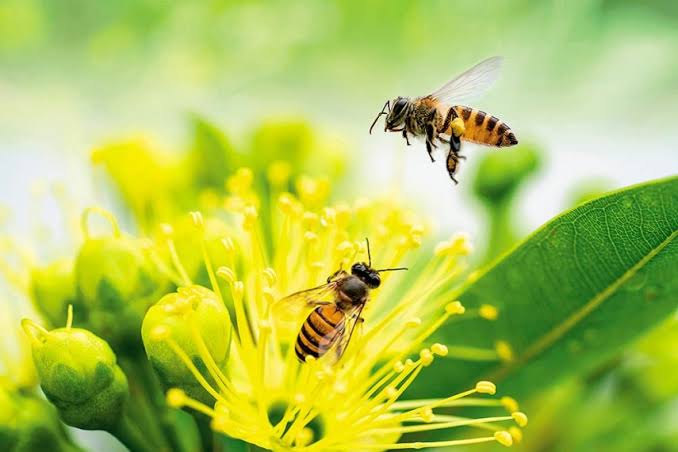Roundtable Argument between Bee keeper, Honey lovers and an Economist in the jungle
Economist::. Is this what makes honey so expensive?
I mean it is locally made and nature feeds bees..why must a litre b be at 22k sincerely?
Honey lover 1:. I buy 5 litres at 100k, so I think that price is fair
Honey lover 2: It requires a lot to have such a quality honey. Bee farming is not as easy as you think, it goes through a lot of processes which involves spending and production is done within a time frame that is not constant. These among other reasons have contributed to the high price.
Economist: That is 20k per litre. Still expensive. Milk production requires far more input in terms of labour and financial resources, and lots of land. A litre of processed milk is 3000 ug shs.
Honey lover 1: ```22k is even cheap, ask a person where they're exporting it how much a kg of pure honey goes for!
So my fellow farmers let's support our environment. Fish won't survive in polluted waters, many in land water lakes in the so called countries are just water bodies that can't support life...
So please notice the same people are coming here to disorganise us!```
Economist:. What is the shelf life of pure honey?
Honey lover 2: 60 years for some least I know of is 20 years the contaminated ones ,where someone dips a finger in jar and licks stays for maybe 5 years.
Economist: What's the shelf life of raw milk?
Honey lover 1: We can't compare oranges with apples, nor can we compare a kilo of fish with beef my brothers.
Economist: In Energy production economics, there is a term known as levelised cost of energy or LCOE. It helps in finding a common ground for comparing apples and oranges when it comes to different inputs of energy production.
It is the total cost of setting up a power station and operating it over its lifetime divided by power generated from it.
So you get the cost per unit of energy produced, using different sources such as hydro, solar, wind, gas, coal, petrol, etc.
In a similar way we can compare honey and milk. The cost, M, of buying cows, land, labour, feeds, vaccination and any other inputs, over its lifetime. If we know the lifetime of a dairy cow, we can calculate how many litres it will produce over this time, N. Then we can know levelized cost per litre (LCPL) from M/N.
Similarly for bees: what is cost, P, of all equipment and inputs needed to produce honey from a single hive? What is the lifetime of a hive? How many litres of honey, Q, can we get from one hive during this time? LCPL , as before, is P/Q.
Do these two figures of LCPL justify the current cost of one litre of milk or honey?
A fella from kamooli: I enjoy the argument you guys! It has gone technical🤩🙇♀.
Economist: How will the GMOs refuse bees from making honey?.
Honey lover 2: 😅 since it is presumably over priced, Mr Economist is free to join the honey producers so as:
1. Regulate the price
Or
2. Join them in making money who doesn't want it after all
But in luganda they say _"kamulali gw'otolidde takubalagala"_ in English it is the taste of the pudding is in the eating
```Let the demand and supply dictate. Otherwise the way I see it, honey prices will continue to increase, let's protect our environment so that we don't join those communities whose honey is determined by their percentage purity``` .
Honey lover 1: I also need help on how they'll do that.
Economist: I keep wondering why in economies like USA, why they're now moving towards like alike honey versions. I am a regular consumer of natural honey. I need justification for the high price, since its not like prices for all other foods are constantly going up🤷🏽♀🤷🏽♀.
Honey lover 2: I'm also a consumer, with one beehive with a desire to start up an apiary
Honey lover 2: The argument that honey is naturaly produced by bees, and so it should be cheap, does not hold water. There are processes you have to go through to produce a product. If that argument held water, then GOLD would be the cheapest commodity, for its just dug out of pits.
Economist: Lets do the LCPL to justify prices.
Honey lover 1: since it takes into account the costs for all those processes.
Honey lover 2: Kindly do LCPL and do a PA (price adjustment), I'm afraid you'll do it on your own production
We sell honey in our shop, lately there has been short supply. We also have adulterated versions on the market.
Pure honey like it or not will continue to be scarce because of it's versatile applications.
A passerby: By disrupting their Natural habitat (GIVEN THE NEED FOR FERTILISERS / PESTCIDES USED) kills them or they fly off hence NO HONEY.
Another passerby: It has a great range of health benefits.
Mr Bees: Basically, organic Honey is expensive because of the legal requirements that the beekeepers and producers have to adhere to in order to acquire the necessary certification that guarantees the honey to be organic.
Mr Bees: Also, it's important to understand the working style of a Honeybee.. it's said that to produce 1kg of honey, 1 million flowers must be visited and a hive of bees flies 150000km to produce a kg of honey.one bee colony can produce 140kg in a year. This fact alone makes honey expensive
Economist: 👍🏾👍🏾.
Remember our Environment is our Responsibility, So let's save bees diversity.
By
Wandera Alexander
Volunteers Global Youth Network
Volunteer Uganda Youth Biodiversity Network
Co- Founder Fetcher Youth Green Africa
+256773545347








Awesome article, it was exceptionally helpful! I simply began in this and I'm becoming more acquainted with it better! Cheers, keep doing awesome! Organic Honey,
ReplyDelete